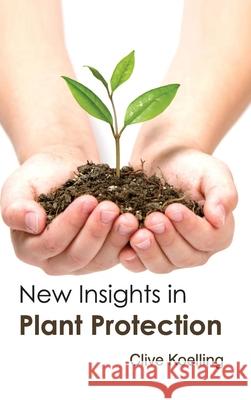New Insights in Plant Protection » książka
New Insights in Plant Protection
ISBN-13: 9781632394798 / Angielski / Twarda / 2015 / 260 str.
This book presents various outcomes of recent studies and advancements regarding plant protection. Crop losses due to pests, including insects, diseases and weeds, have been prevalent for a long time. However, with the intensification of agriculture and dynamic changes in cropping patterns including the cultivation of high yielding varieties and hybrids; over time, the role played by pesticides has become extremely significant. Nearly a thousand insect species (between 600 to 800), 1500 to 2000 plant species, several fungal, nematode and bacterial species as well as viruses are regarded as pests of specific concern in the field of agriculture. For the maintenance of the quality of crop yields, these pests need to be appropriately controlled. Also, these pests can cause an increase in the production costs as well as prices of food and fiber. Therefore, this book presents current approaches in plant production from diverse perspectives.
This book presents various outcomes of recent studies and advancements regarding plant protection. Crop losses due to pests, including insects, diseases and weeds, have been prevalent for a long time. However, with the intensification of agriculture and dynamic changes in cropping patterns including the cultivation of high yielding varieties and hybrids; over time, the role played by pesticides has become extremely significant. Nearly a thousand insect species (between 600 to 800), 1500 to 2000 plant species, several fungal, nematode and bacterial species as well as viruses are regarded as pests of specific concern in the field of agriculture. For the maintenance of the quality of crop yields, these pests need to be appropriately controlled. Also, these pests can cause an increase in the production costs as well as prices of food and fiber. Therefore, this book presents current approaches in plant production from diverse perspectives.











